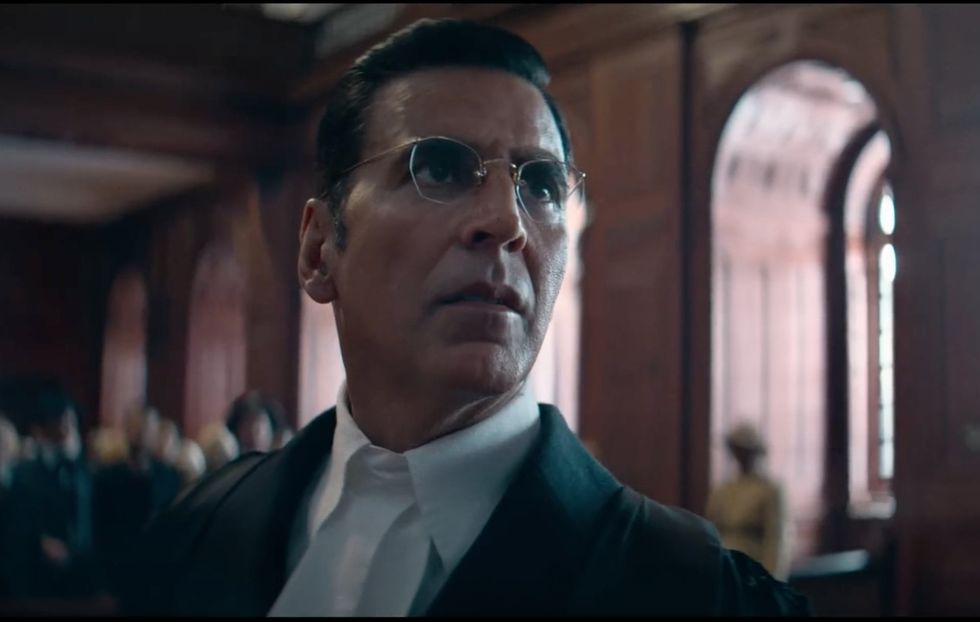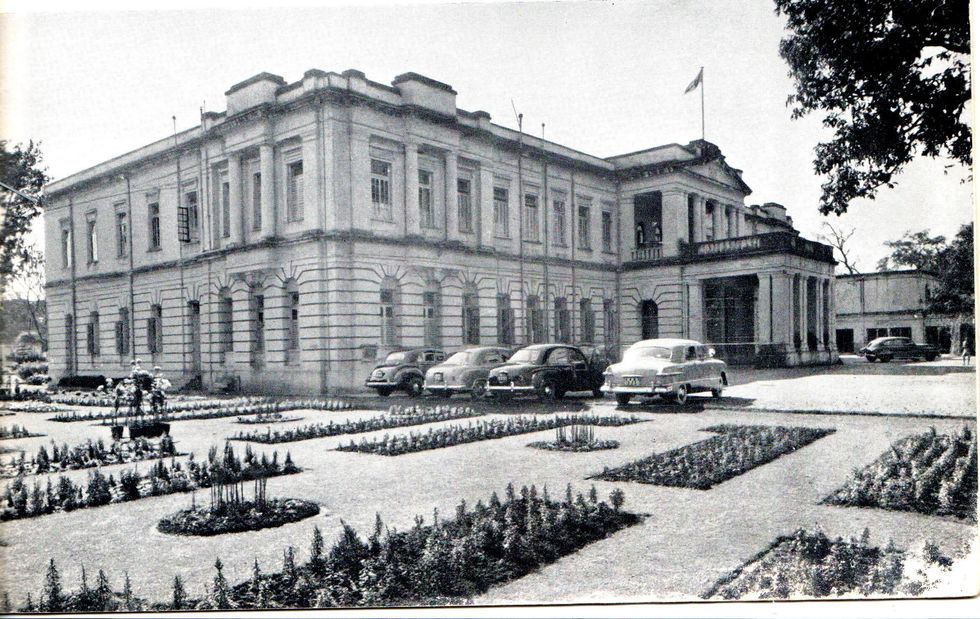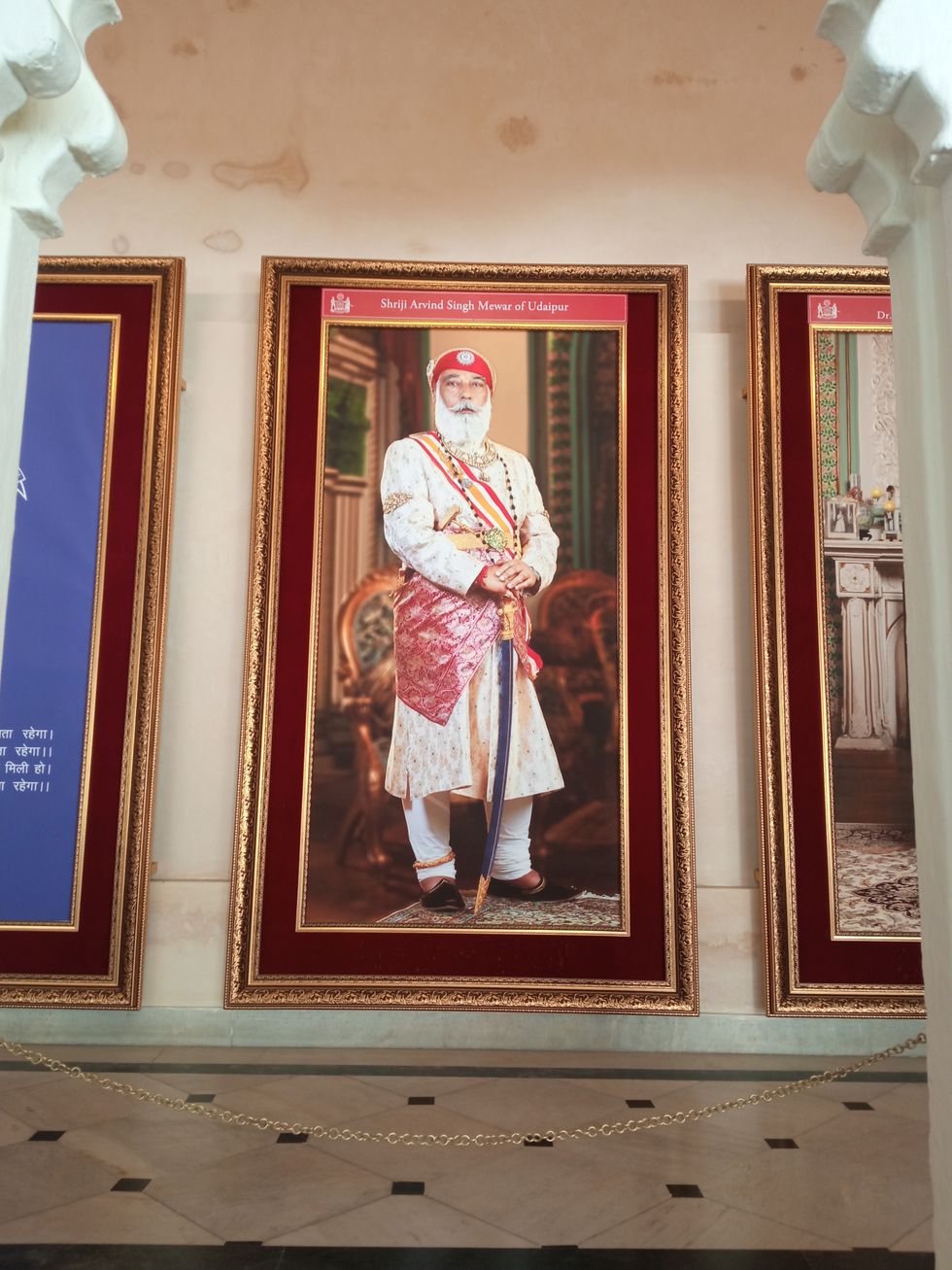ONE film I am very much looking forward to seeing is Oppenheimer, partly because of the alleged quote from the Bhagvad Gita attributed to the scientist J Robert Oppenheimer, as he witnessed the horrific power of the atomic bomb he had brought into being: “Now I am become Death, the destroyer of worlds.”
As wartime head of the Los Alamos Laboratory, the headquarters of the Manhattan Project, Oppenheimer is seen as the “father” of the atomic bomb. He witnessed the first detonation of a nuclear weapon on July 16, 1945, in the Jornada del Muerto desert about 35 miles southeast of Socorro, New Mexico.
For an insight into what Oppenheimer might have meant, I turned to Viram Jasani, who – as I mentioned last week – has found solace in his father’s much-loved copy of the Bhagvad Gita. It has a translation and commentary by Dr Sarvepalli Radhakrishnan, the Spalding Chair of Eastern Religion and Ethics at Oxford from 1936 to 1952 and president of India from 1962-1967.
It was “a very relevant and difficult question and I – as a novice – will attempt to provide you some ideas about it,” volunteered Viram. “Firstly, I could not find the exact words in the version of the Gita that I have. It could well be in other publications – eg Vivekananda or Aurobindo. However, the idea is touched upon in various ways.”
Viram referred to Chapter 11, verse 32 in the Gita, which deals with the discourse between the Lord Krishna and Prince Arjun, who has to be encouraged to do his duty even if this meant going into battle against kith and kin.

He singled out: “Time am I, world destroying, grown mature engaging here subduing the world.” Radhakrishnan’s explanation, said Viram, is the following: “Even without Krishna’s involvement all the enemies of Arjun were destined to die. Kala or time is the prime mover of the universe. If God is thought of as time, then he is perpetually creating and destroying – hence he is responsible for both creation and destruction. God is time and time is in God who is outside of time so he controls it.
“He sees and knows how all events will work themselves out. He told Arjun that the causes for the events they found themselves in had been at work for years and they were now moving towards their natural effects and no one could prevent that.”
Viram added his own thoughts: “Perhaps Oppenheimer felt he was doing God’s will whether he liked it or not. He was perhaps doing his duty as a scientist in the pursuit of knowledge but had to leave the final decision to the politicians who are generally blinded by their own immense egos and ignorance and understanding of our world.
“It would be great to know what was going on in Oppenheimer’s mind at the time. What was Einstein thinking – and all the others? They were all obliged to work towards stopping the huge evil that was Hitler – and today it’s Putin and his mates.”
Viram drew my attention to some other quotes. This is from Chapter 11, verse 29: “People are blinded by their own ignorance and rush towards destruction.”
This is interpreted as “cause and effect”.
Chapter 10, verse 20 says, “I am the beginning, the middle and the very end of beings,” while Chapter 10, verse 34, has this line, “I am death, the all devouring and I am the origin of things that are yet to be.”
Viram commented: “Perhaps Oppenheimer felt a deep sense of guilt, shame and humility wanting to understand what God’s purpose was. He had a feeling of helplessness, being unable to change the course of humanity.
“Did God induce him to create this massive weapon? He was not a warrior, he was a scientist and he was tasked to create that huge power and hand over control to politicians whose interest in morality was somewhat dubious.”
At school and university, we were not taught about the power of the atomic bombs which were dropped on Hiroshima and Nagasaki. However, in physics we learnt about the relationship between mass and energy, best summed up in Einstein’s famous equation, E=mc2.
We were also taught about the long half lives of radioactive elements such as Uranium 235 (700 million years). That helps to explain the problems of Chernobyl as well as the Fukushima Daiichi nuclear power plant in Japan.
Then it was explained why an iron poker glows when it is stuck into a flaming forge.
This is because the electrons, which circle the nucleus of an atom, require less energy in a higher orbit. And the excess energy is emitted as light.
In India, Devdutt Pattanaik, a writer on Hindu mythology, has disputed Oppenheimer’s interpretation of the Bhagvad Gita and veered towards what Viram had said: “I did some research on Oppenheimer, and I had never come across this line. Someone said it was chapter 11, verse 32, which really says ‘kaal-asmi’, which means ‘I am time, destroyer of the world’. So, his translation itself is wrong. It is not ‘I am death’. It is time – time is the destroyer of the world.”
He added: “For a scientist, if he has used this sentence… And I have seen that video also of his, where he keeps saying, ‘I am death, I am death’. It is very clearly, ‘I am time’. ‘Kaal’ means ‘time’.
“That is what he is saying, but, of course, he gets excited because he’s seeing death and destruction at a massive scale, and he’s obviously seeking some kind of a spiritual background… I think he was looking for some solace, and he found this verse very dramatic.”
While we are on the subject of scriptures, it would be great if schoolchildren in Britain were introduced to the Bible, the Bhagvad Gita, the Qu’ran, the Torah and the Guru Granth Sahib. In India, at St Xavier’s School in Patna, run by Jesuits, we studied only the Gospels.






 Priya Malik
Priya Malik Kaavish
Kaavish Kesari: Chapter 2
Kesari: Chapter 2 Laapataa Ladies
Laapataa Ladies Rizwan Muazzam
Rizwan Muazzam Manasi Ghosh
Manasi Ghosh Kavya Limaye
Kavya Limaye L2: Empuraan
L2: Empuraan Rahat Fateh Ali Khan
Rahat Fateh Ali Khan









 The Calcutta Club
The Calcutta Club The Bengal Club lawns
The Bengal Club lawns


 His portrait in the City Palace
His portrait in the City Palace
 Pakistani artist Moazzam Ali Khan caught the attention of Bollywood legend Javed Akhtar with his soulful YouTube cover of Yeh Nain Deray Deray
Pakistani artist Moazzam Ali Khan caught the attention of Bollywood legend Javed Akhtar with his soulful YouTube cover of Yeh Nain Deray Deray John Abraham to headline action thriller Tehran
Getty Images for DIFF
John Abraham to headline action thriller Tehran
Getty Images for DIFF
 Tikri Border, Haryana-Delhi by Aban Raza
Tikri Border, Haryana-Delhi by Aban Raza Harmz Matharu
Harmz Matharu Abhishek Bachchan in Be Happy
Abhishek Bachchan in Be Happy Devika's soulful vocals shine in her new Punjabi ballad Wisteria
Devika's soulful vocals shine in her new Punjabi ballad Wisteria Indian Idol star Nitin Kumar promises a soulful mix of qawwali, Sufi, and folk music at his upcoming UK performance
Indian Idol star Nitin Kumar promises a soulful mix of qawwali, Sufi, and folk music at his upcoming UK performance Kunal Kamra during his show
Wikipedia
Kunal Kamra during his show
Wikipedia
 Swiss-Indian singer BombayMami is making waves with her bold style and sound
Swiss-Indian singer BombayMami is making waves with her bold style and sound Hania Aamir receives a questionable honour in London
Hania Aamir receives a questionable honour in London